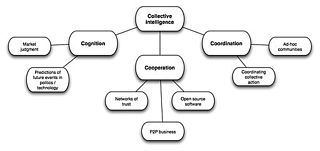
In philosophy, empiricism is an epistemological view which holds that true knowledge or justification comes only or primarily from sensory experience. It is one of several competing views within epistemology, along with rationalism and skepticism. Empiricism emphasizes the central role of empirical evidence in the formation of ideas, rather than innate ideas or traditions. Empiricists may argue that traditions arise due to relations of previous sensory experiences.
Philosophy of religion is "the philosophical examination of the central themes and concepts involved in religious traditions". Philosophical discussions on such topics date from ancient times, and appear in the earliest known texts concerning philosophy. The field is related to many other branches of philosophy, including metaphysics, epistemology, logic and ethics.
Skepticism, also spelled scepticism in British English, is a questioning attitude or doubt toward knowledge claims that are seen as mere belief or dogma. For example, if a person is skeptical about claims made by their government about an ongoing war then the person doubts that these claims are accurate. In such cases, skeptics normally recommend not disbelief but suspension of belief, i.e. maintaining a neutral attitude that neither affirms nor denies the claim. This attitude is often motivated by the impression that the available evidence is insufficient to support the claim. Formally, skepticism is a topic of interest in philosophy, particularly epistemology.

Thomas Reid was a religiously trained Scottish philosopher best known for his philosophical method, his theory of perception, and its wide implications on epistemology, and as the developer and defender of an agent-causal theory of free will. He also focused extensively on ethics, theory of action, language and philosophy of mind.
Reason is the capacity of applying logic consciously by drawing conclusions from new or existing information, with the aim of seeking the truth. It is associated with such characteristically human activities as philosophy, religion, science, language, mathematics, and art, and is normally considered to be a distinguishing ability possessed by humans. Reason is sometimes referred to as rationality.
In philosophy, rationalism is the epistemological view that "regards reason as the chief source and test of knowledge" or "any view appealing to reason as a source of knowledge or justification", often in contrast to other possible sources of knowledge such as faith, tradition, or sensory experience. More formally, rationalism is defined as a methodology or a theory "in which the criterion of truth is not sensory but intellectual and deductive".

Francis Hutcheson LLD was an Irish philosopher born in Ulster to a family of Scottish Presbyterians who became known as one of the founding fathers of the Scottish Enlightenment. He was Professor of Moral Philosophy at Glasgow University and is remembered as author of A System of Moral Philosophy.
Philosophical skepticism is a family of philosophical views that question the possibility of knowledge. It differs from other forms of skepticism in that it even rejects very plausible knowledge claims that belong to basic common sense. Philosophical skeptics are often classified into two general categories: Those who deny all possibility of knowledge, and those who advocate for the suspension of judgment due to the inadequacy of evidence. This distinction is modeled after the differences between the Academic skeptics and the Pyrrhonian skeptics in ancient Greek philosophy. In the latter sense, skepticism is understood as a way of life that helps the practitioner achieve inner peace. Some types of philosophical skepticism reject all forms of knowledge while others limit this rejection to certain fields, for example, to knowledge about moral doctrines or about the external world. Some theorists criticize philosophical skepticism based on the claim that it is a self-refuting idea since its proponents seem to claim to know that there is no knowledge. Other objections focus on its implausibility and distance from regular life.

Divine command theory is a meta-ethical theory which proposes that an action's status as morally good is equivalent to whether it is commanded by God. The theory asserts that what is moral is determined by God's commands and that for a person to be moral he is to follow God's commands. Followers of both monotheistic and polytheistic religions in ancient and modern times have often accepted the importance of God's commands in establishing morality.

The Euthyphro dilemma is found in Plato's dialogue Euthyphro, in which Socrates asks Euthyphro, "Is the pious loved by the gods because it is pious, or is it pious because it is loved by the gods?" (10a)
Early modern philosophy The early modern era of philosophy was a progressive movement of Western thought, exploring through theories and discourse such topics as mind and matter, is a period in the history of philosophy that overlaps with the beginning of the period known as modern philosophy. It succeeded in the medieval era of philosophy. Early modern philosophy is usually thought to have occurred between the 16th and 18th centuries, though some philosophers and historians may put this period slightly earlier. During this time, influential philosophers included Descartes, Locke, Hume, and Kant, all of whom contributed to the current understanding of philosophy.
Ethical intuitionism is a view or family of views in moral epistemology. It is foundationalism applied to moral knowledge, the thesis that some moral truths can be known non-inferentially. Such an epistemological view is by definition committed to the existence of knowledge of moral truths; therefore, ethical intuitionism implies cognitivism.
Philosophical realism – usually not treated as a position of its own but as a stance towards other subject matters – is the view that a certain kind of thing has mind-independent existence, i.e. that it exists even in the absence of any mind perceiving it or that its existence is not just a mere appearance in the eye of the beholder. This includes a number of positions within epistemology and metaphysics which express that a given thing instead exists independently of knowledge, thought, or understanding. This can apply to items such as the physical world, the past and future, other minds, and the self, though may also apply less directly to things such as universals, mathematical truths, moral truths, and thought itself. However, realism may also include various positions which instead reject metaphysical treatments of reality entirely.
Moral sense theory is a theory in moral epistemology and meta-ethics concerning the discovery of moral truths. Moral sense theory typically holds that distinctions between morality and immorality are discovered by emotional responses to experience. Some take it to be primarily a view about the nature of moral facts or moral beliefs —this form of the view more often goes by the name "sentimentalism". Others take the view to be primarily about the nature of justifying moral beliefs —this form of the view more often goes by the name "moral sense theory". However, some theorists take the view to be one which claims that both moral facts and how one comes to be justified in believing them are necessarily bound up with human emotions.
The following outline is provided as an overview of and topical guide to metaphysics:

Common sense is sound, practical judgement concerning everyday matters, or a basic ability to perceive, understand, and judge in a manner that is shared by nearly all people.

American philosophy is the activity, corpus, and tradition of philosophers affiliated with the United States. The Internet Encyclopedia of Philosophy notes that while it lacks a "core of defining features, American Philosophy can nevertheless be seen as both reflecting and shaping collective American identity over the history of the nation". The philosophy of the Founding Fathers of the United States is largely seen as an extension of the European Enlightenment. A small number of philosophies are known as American in origin, namely pragmatism and transcendentalism, with their most prominent proponents being the philosophers William James and Ralph Waldo Emerson respectively.

British philosophy refers to the philosophical tradition of the British people. "The native characteristics of British philosophy are these: common sense, dislike of complication, a strong preference for the concrete over the abstract and a certain awkward honesty of method in which an occasional pearl of poetry is embedded".

Scottish common sense realism, also known as the Scottish school of common sense, is a realist school of philosophy that originated in the ideas of Scottish philosophers Thomas Reid, Adam Ferguson, James Beattie, and Dugald Stewart during the 18th-century Scottish Enlightenment. Reid emphasized man's innate ability to perceive common ideas and that this process is inherent in and interdependent with judgement. Common sense, therefore, is the foundation of philosophical inquiry. Though best remembered for its opposition to the pervasive philosophy of David Hume, Scottish common sense philosophy is influential and evident in the works of Thomas Jefferson and late 18th-century American politics.









